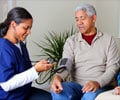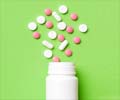Are you taking Glipizide? Are you aware of the dangers of combining Glipizide with alcohol? Drug-food-interactions are seldom discussed but can lead to undesirable side effects and potentially diminish the efficacy of the medication.
National Institute on Alcohol and Alcoholism. (2014) Harmful Interactions: Mixing Alcohol With Medicines.
Go to source).
References
1. National Institute on Alcohol and Alcoholism. (2014) Harmful Interactions: Mixing Alcohol With Medicines. https://www.niaaa.nih.gov/publications/brochures-and-fact-sheets/harmful-interactions-mixing-alcohol-with-medicines
2. National Library of Medicine: Glipizide MedlinePlus Drug Information. https://medlineplus.gov/druginfo/meds/a684060.html#
Glipizide Interactions with Alcohol
Avoid alcohol intake while using glipizide as it can cause some side effects like low blood sugar level, nausea, vomiting, headache, rapid heartbeat, weakness and sudden changes in blood pressure (1✔ ✔Trusted SourceNational Institute on Alcohol and Alcoholism. (2014) Harmful Interactions: Mixing Alcohol With Medicines.
Go to source).
When and How to Take Glipizide
- Glipizide is available in the form of a tablet and extended-release tablets to be taken orally (by mouth)
- The regular tablet should be taken 30 minutes before meals one or more times a day.
- The extended-release tablet is usually taken with breakfast once a day.
- Swallow the extended-release tablets as a whole instead of crushing, chewing or breaking them.
- Follow the directions exactly as given on the prescription label. Take the medication at the same time every day for better results.
- Do not exceed or skip a dose. If you miss it, take the medication as soon as you remember.
- Do not double the dose at a time to compensate for a missed dose (2✔ ✔Trusted Source
National Library of Medicine: Glipizide MedlinePlus Drug Information.
Go to source).
References
1. National Institute on Alcohol and Alcoholism. (2014) Harmful Interactions: Mixing Alcohol With Medicines. https://www.niaaa.nih.gov/publications/brochures-and-fact-sheets/harmful-interactions-mixing-alcohol-with-medicines
2. National Library of Medicine: Glipizide MedlinePlus Drug Information. https://medlineplus.gov/druginfo/meds/a684060.html#















